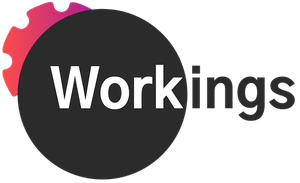- We humans are already cyborgs, and we have been for quite some time. Although only a minority of us currently have technological implants (like pacemakers), the vast majority of us are connected to one or more devices for most of our waking hours.
- Despite what I tell my teenagers, this is neither good nor bad. It’s complicated. On the one hand, our attention spans do seem to be disintegrating (read this to fight back). On the other hand, technology allows us all to do marvelous things (Connect with far-flung loved ones! Work from Spain!)—and assistive technologies are life-changing in ways that bring tears to the eyes of this devout humanist.
- Even as we accept the increased integration of technology into our lives, work, and even bodies (and I, for one, do), we humans shouldn’t lose sight of our comparative advantages. That list is getting shorter by the month, but I’m comfortable making at least one prediction: it’ll be a very long time before humans will want to be looked after by robots vs. other humans. (More on this another time but my theory: because humans die, the act of caring for one another—literally giving a part of your decidedly finite life to someone else!—is experienced by the recipient, and rightly so, as love, something that all humans crave...and no human can get enough of.)
- Caregiving—which in business is called things like “client service,” “customer support”, and “employee support”—has always been a source of competitive advantage. Now that caregiving is one of the increasingly few comparative advantages we humans have vs. AI, that’s only going to become more and more true.
The TL;DR (too long; didn’t read) for everyone at Steyer Content (and in professional services, more generally): if you’re not already very good at looking after other people—listening, problem-solving, soothing, supporting—you’ll want to start developing those skills, no matter how brilliant you are, technically or creatively. And if you *are* good at caregiving, well: this is your time.
Thanks for reading,
Kate
P.S. This is neither here nor there (because this glitch will be fixed in no time) but because I’m a petty human I’ll share it: my Mac’s text-to-speak function pronounces “caregiver” as “care jiver.” Who says robots aren’t funny? 🙂
Photo by Michael Fenton on Unsplash



